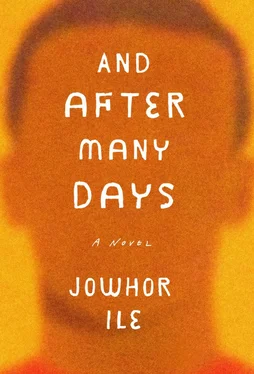How do you make yourself do that? How do you learn how to work yourself up over something that’s not directly your concern?
The stories in the newspaper sounded more interesting when Paul talked about them. Ajie never would have been interested in artificial fuel scarcity until Paul explained it to him and Bibi. Or Paul’s bizarre theories about the bloody conflict between the Tiv and Junkun communities in the middle belt state of Benue. Ajie didn’t care about those, either, but he listened. He enjoyed more than anything else the giddy warmth, the moral high of when Paul said “us,” including him as part of the masses. This was something true and important, and it heated Ajie up.
“Don’t worry about it,” Paul said, stopping much too soon that day. He picked up an enormous Harold Robbins novel he had started reading; on the cover was a green-eyed brunette who had red luscious lips and a fur coat draped around her shoulders.
What is that book about? Ajie wanted to ask Paul, but on occasion even he felt reluctant about being a constant nuisance to people, and he could see Paul didn’t want to be disturbed, so he went into the kitchen to get some ice cubes to chew. When he returned to the parlor, Bibi had put aside the newspaper and was reading a shoddily printed copy of Efuru that they had found while rummaging through Fola’s garage and were now taking turns reading by order of seniority.
“When are you going to finish the book?” Ajie asked Bibi.
“Just about five pages left.” Bibi thumbed through what was left of the book, “it’s sooo interesting, should I tell you the story?”
“No.”
“You can be so grumpy sometimes. Why?”
“I don’t want to hear,” Ajie said, and then threw the second ice cube into his mouth and began to crunch it.
Bibi couldn’t hold herself back. “It’s about this marvelous Oguta woman…oh, I really like her. She was very beautiful and loved by her husband, but she was barren, and her mother-in-law didn’t want her.”
“You are just looking for trouble,” Paul said to Bibi.
“It’s not as if I’m going to spoil it for him. It’s so tragic,” Bibi purred, and sank back into the sofa. “Okay, I’ll just say this one thing and leave it there: I think someone dies at the end.”
Ajie looked at her. He would refuse to read the book just to spite her. He would fling it back at her and tell her to return it, since he didn’t want to read it anymore. He imagined she would feel something as sharp as pity mixed with guilt, and she would try to make it up to him somehow, but he wouldn’t give her the chance.
“Do you know,” Bibi was already saying to Paul, “that in France, crimes of passion are forgiven? I read something like that in one of Bendic’s journals. There was a woman who killed her husband with a fork during an argument, and she wasn’t jailed for murder.”
“Temporary insanity,” Paul said, “but it depends on the circumstance and on many other things.”
“Port Harcourt is not Paris,” Ajie quipped at Bibi.
“True.”
“Nigeria is not France.” Like he hadn’t made his point.
Bibi threw him a glance and held his gaze for a moment, “Can’t you just stop being annoying sometimes?”
Ajie yawned with his mouth wide open, covering it with his clenched hand.
Years later, each time he heard crime of passion, he would think of a woman in Paris with a fork in her hand, but more than that, he would think of the woman in a story Ma had told them. A story that sounded like it happened in the olden days but which Ma said only took place after the war. She said she knew the family, and that after the tragic event, a ballad was composed that spread through all of Ogba land and didn’t go out of season for many many years.
There was this woman from Erema who would leave her husband and move in with a man whose house was on the farther side of the same village. As was the custom, leaving your husband in that way was an accepted (if reproachable) way for a woman to initiate divorce. After that an amicable settlement could be reached, and the legal aspects of ending the marriage would be embarked on. This involved returning the bride-price paid by the husband’s family.
This woman would leave her husband and stay with the second man for many days, sometimes a whole year, and each time her husband would go to her people to plead with her to return to him. Her people would put pressure on her and she would return to her husband, but soon after, the affair would resume. Her husband sent emissaries to beg the man to leave his wife alone, but nothing changed. One day the husband took a machete and chopped off the head of his wife’s lover. Then he carried the head and walked the whole length of the village, and each time he met someone, he asked, “This thing I have done, is it good or is it bad?” and the person would answer, “It is right what you have done, it is good.” And when he reached the end of the village, he killed himself: exactly what was expected of a man who had taken the life of another.
The children named her “the love woman,” even though Ma never mentioned the word love . Ma always rendered the account in a few sentences, just as it had happened. She seemed to be in awe of the story each time she told it, as if saying to her children, “This is something that has happened in the world. This is what can happen in the world.” It was Bendic who called it a “costly affair.” It was Bendic who once said with a sigh, “Desire is blind.” It was also Bendic who wondered aloud about which was the worse punishment for their affair, “to be the one beheaded or be the one who survived to live through the aftermath?”
But whatever there was to know about desire and its costs was beyond Ajie then. He was at that time completely passionate and pure. He imagined himself, his brother, and his sister to be people who would shoot into the world and burn, fiery arrows set free by their parents from their home here at number 11. They would love greatly and do useful things. Bibi would become rich and important and build houses and hospitals for the poor. Paul would simply change the world.
But what would that cost?
As for desire, Ajie knew well about animals mating, he had read about and fairly well understood the mechanics of human sex, but this was before that holiday when Ma and Bendic had to go to America for two weeks and sent them to spend the time with their uncle Tam, who lived in D-Line. It was in that D-Line house that he had his first intimations of desire. It was in that house, in an upstairs room with netted windows that gave onto a moss-covered fence where an Agama lizard watched and nodded, that he, Ajie, lay beside Barisua, Uncle Tam’s house help, who was breathing softly after he had touched her and she had touched him back.
The blue Peugeot 504 station wagon moved slowly down the narrow road. A woman on a bicycle coming from the opposite direction paused to make way, one foot on the ground. She leaned into the bush and peered into the passing vehicle. There was hesitation, then the quick light of recognition catching on her face. She waved, shepherding her bicycle out of the bush as the car passed.
“Slow down,” Bendic said to Marcus as they approached the bend. Stalks of grass slapped against the car window. Damp leaves clutched and slid past like hands. Two children ran onto the road, rolling an old car tire. They sighted the station wagon and stood for a while in their underpants to watch it pass.
“They should have done bush cutting by now,” Ma said, looking out the window to the high thicket on the roadside. “OYF is not serious anymore.” By which she meant the Ogibah Youth Front, whose obligations included road clearing and other maintenance work around the village, especially during preparations for the festive seasons.
Читать дальше












